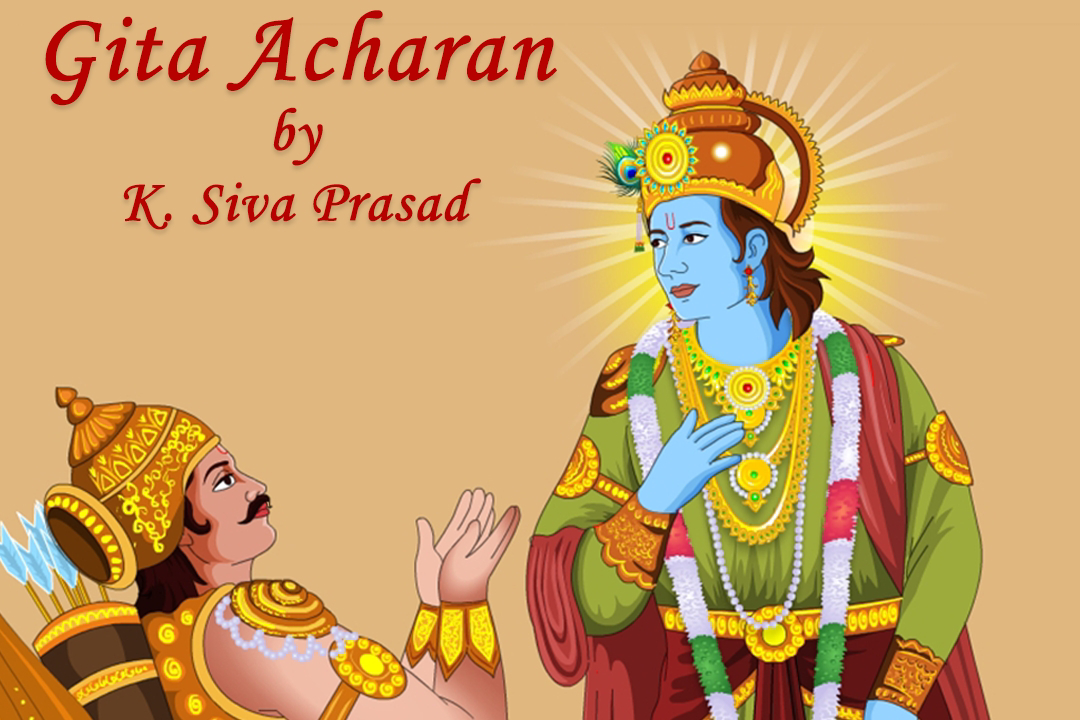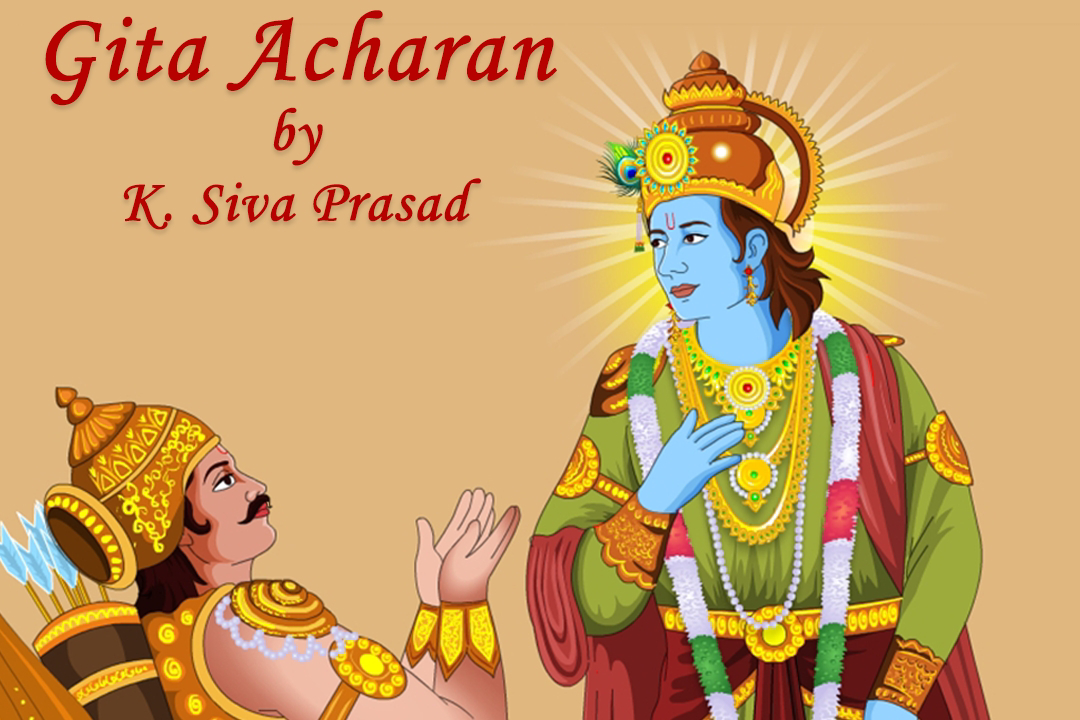194. HE Dwells in Hearts of All

Krishna says, "'That which is to be known' is the Sustainer, Destroyer and Creator of beings; indivisible and yet existing as if divided in living beings (13.17). The Light of lights; Beyond the darkness. He is knowledge, the object and the goal of knowledge. He dwells in the hearts of all (13.18). Realising this, My devotee attains My Being" (13.19). "He dwells in the hearts of all" was dealt with earlier when Krishna said that he who has perfected in yoga finds the wisdom in the self (4.38). Shraddha-vaan (one with Shraddha ) and Jitendriya (one who conquered senses) obtain wisdom leading to parama-shanti (supreme peace) (4.39). The ignorant, devoid of Shraddha is ruined and there is no happiness for him in this world or another (4.40). HE is indivisible and yet exists as if divided in the living beings, the inability to comprehend this at the existential level is the source of misery. It is like the proverbial elephant and five blind men w...




